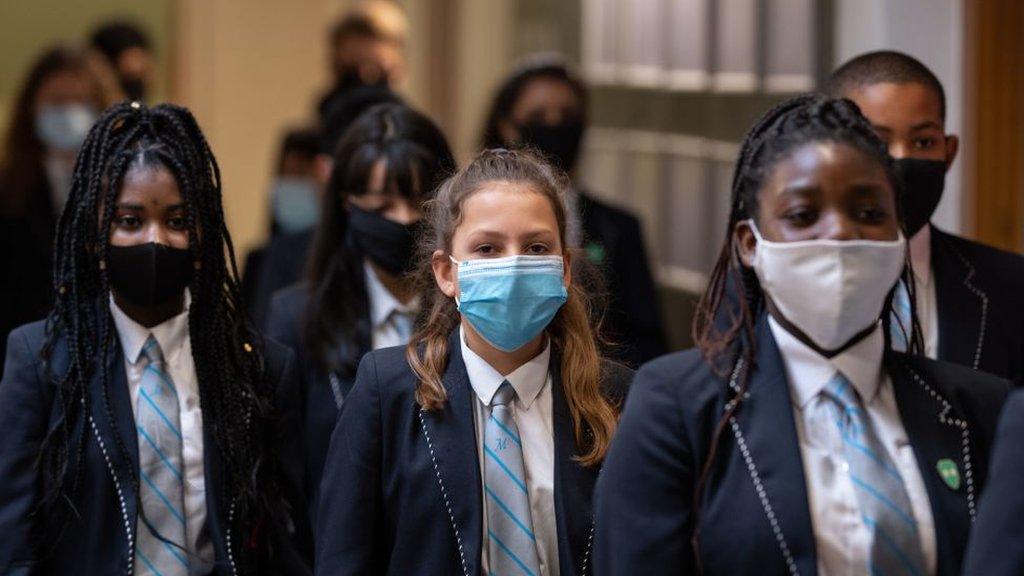Covid: When will measures be relaxed in schools in Wales?
- Published
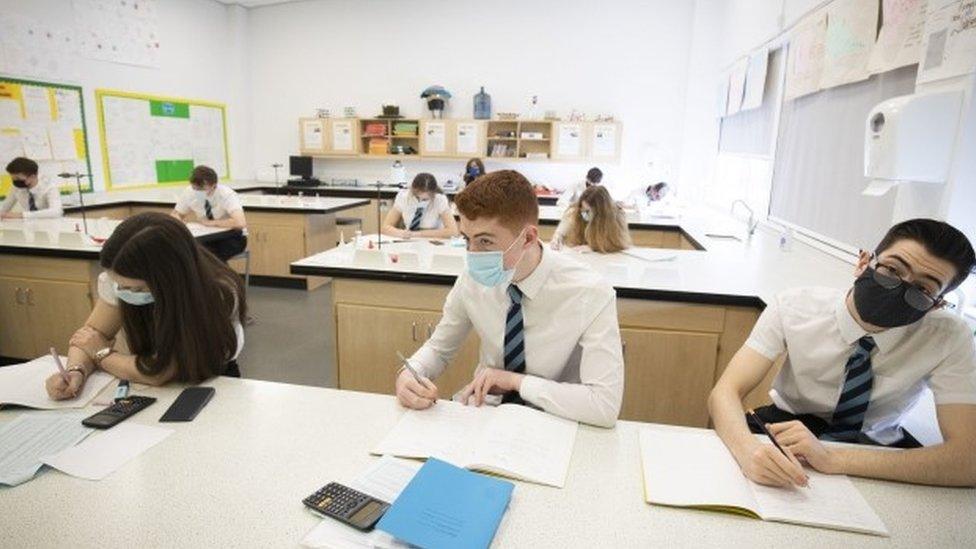
The issue of face masks in schools is being "actively considered", Public Health Wales says
As schools break up for half term after weeks of low Covid rates, measures such as face coverings and class bubbles are still in place.
But restrictions should not last "a day longer than is necessary", according to Children's Commissioner Sally Holland.
Deputy Chief Medical Officer Dr Chris Jones said it could "make sense" to relax controls during the summer months.
But teaching unions said they remained concerned about easing measures.
Prof Holland said it had been a "remarkable, extraordinary and hugely challenging" year-and-a-half for schools, keeping children safe and responding to changing circumstances.
She said new guidance allowing school trips, as well as music teachers increasingly being able to visit schools, were examples of a "semblance of normality" returning.
But on the most significant measures, such as maintaining contact groups and face coverings, she urged the Welsh government to review guidance all the time.
"You can't just let guidance sit for weeks and weeks, we can't have restrictions on children for a day longer than is necessary," she said.
While the government deemed the measures to be necessary due to its public health and scientific advice, Prof Holland said pupils and teachers accepted it on the whole, but she urged the government to listen to all the arguments.
"Not only to evidence about epidemiology, but also the social impact it's having on children and young people so that's physical discomfort, it's how it impacts on their relationships with their peers, but also how it impacts on teaching and learning," she added.

What are the latest Covid figures for Wales' schools?
The latest Public Health Wales figures recorded 55 Covid cases in schools over the past week, a total of 162 over the most recent 21 days.
The cases were reported by 11 of Wales' 22 local authorities.
Two thirds of cases were in Bridgend and Monmouthshire, linked to school cases in Porthcawl and Abergavenny.
Although almost 81% of schools have had a Covid case since September, 208 schools have had only one case.

'Reassuring evidence'
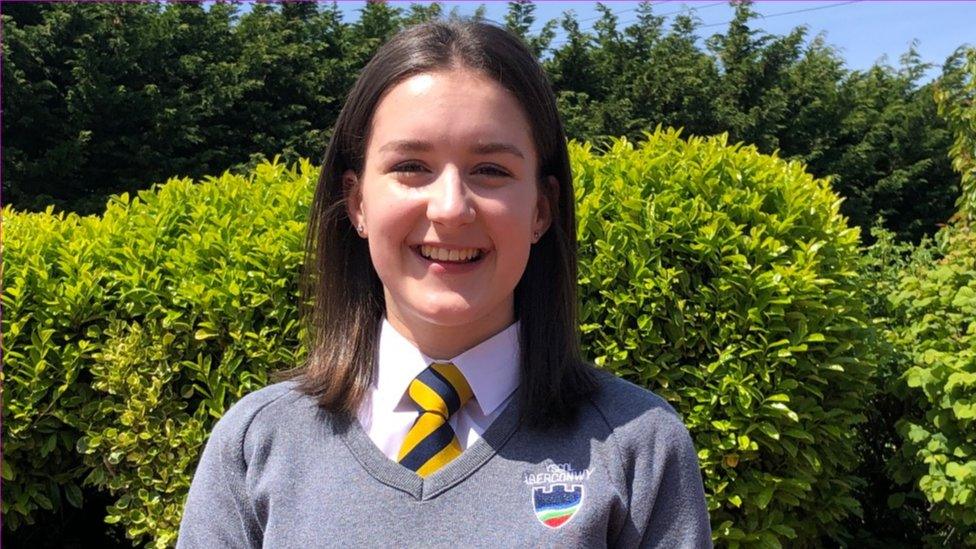
Pupil Hannah Partington says she would be happy to keep wearing face masks
Current guidance says face coverings should be worn by pupils and staff in secondary schools and colleges, including in classrooms, and by primary school staff where social distancing is not possible.
Schools have formed contact groups of pupils to limit mixing.
Twice weekly lateral flow tests are available for children over 11 years old and school staff.
Dr Jones said there were "very few cases being reported in schools", providing "very reassuring evidence" that schools were not "a higher risk environment".
Ian Gerrard, head teacher at Ysgol Aberconwy, in Conwy, said pupils had been "really resilient".
He said he was keen that the restrictions were relaxed "in a safe way", as mask-wearing "does have an impact on learning in classrooms... but I think we've got to be driven by the science".
Pupil Hannah Partington, 18, said: "I think I'd feel comfortable to still wear them. It makes you feel a bit safer."
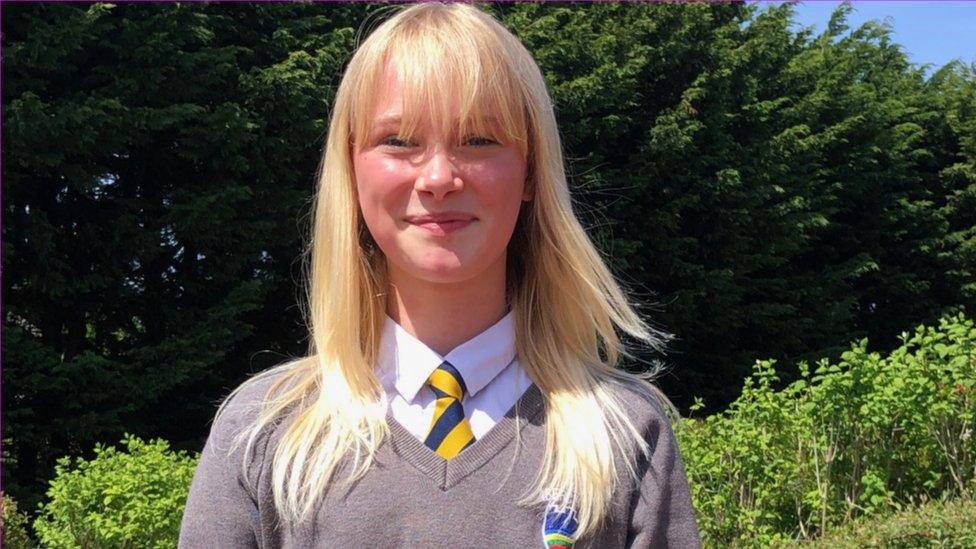
Pupil Marnie Cockrill says it is "worth it" to wear face masks
Her classmate Marnie Cockrill, 18, said she would like restrictions to be "a bit more relaxed", but agreed she would also like to keep wearing a face mask at school.
"It's worth it for the protection," she said.
Wales' Education Minister Jeremy Miles has said school restrictions will be kept under review.
Dr Giri Shankar, from Public Health Wales (PHW), said the country's technical advisory group was considering dropping the rules.
"Personally, I would favour stepping back from face coverings during the summer months," Dr Jones said.
"We may need to reintroduce them again when the winter comes but we can't really decide that without gaining people's confidence - everybody has to feel happy that that approach makes sense."
He added information on face coverings was due "shortly" from the Technical Advisory Cell, a group of experts providing advice to the government.
"We know that there are some harms associated with face coverings and maybe they will get worse during the hot weather over the summer - difficulty with skin and irritation and the heat," he said.
"So I think there is an argument to say the benefit related to the risk is less for face coverings now, but we need to see that evidence and we need to discuss that with teaching unions and also children's representatives because we need to make sure that if there is a change in a policy everyone still has confidence in the protective measures that we have."
'Use this time to investigate'
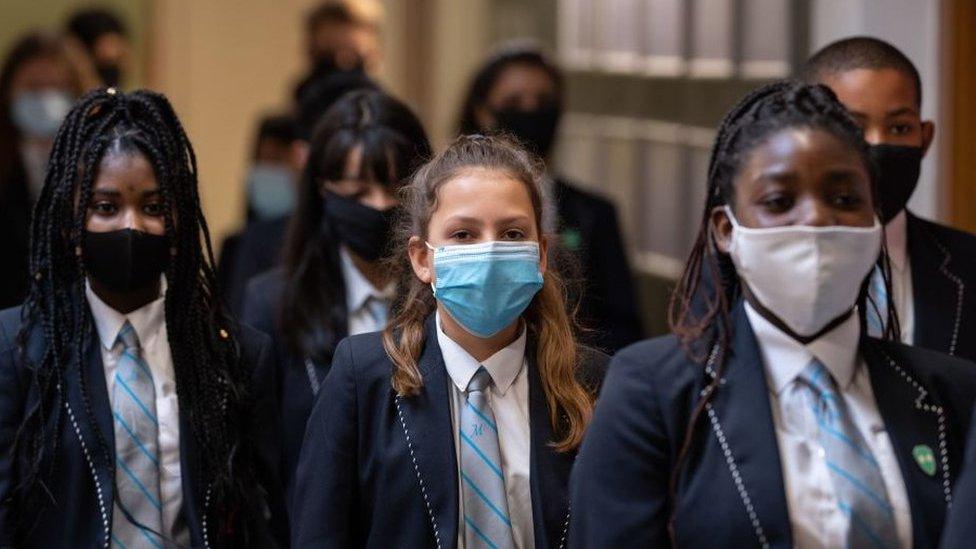
David Evans, NEU Cymru secretary, said it was "too early" to lift Covid restrictions because of the current concerns over the Indian variant.
He said the younger population had not been vaccinated and that they were "more mobile and were meeting more people".
"There are a few weeks left until the end of the term, we should use this time to investigate more fully the Indian variant," Mr Evans added.
He said they still wanted to see pupils wear face masks in classrooms until the end of term and then assess the situation before they start back in school in September.
Dr Chris Jones added that Wales was "ready to go" if the UK-wide Joint Council on Vaccination and Immunisation gave the go-ahead for 16 and 17-year-olds to be vaccinated.
"I think it's fair to say if the JCVI recommended its use in 16 and 17-year-olds we would welcome that in Wales and we would be ready to start that age group sooner rather than later," he said.
"I think from our point of view, because we're already getting through large numbers of the 18 to 29-year-olds we would welcome advice to that effect sooner rather than later from the JCVI.
"They are an independent body of experts, we have to await their deliberations but there's no doubt that we would soon be ready to go if that was advised."
He said the evidence for vaccinating 12 to 15-year-olds was still being assessed by medicines regulators.

RUGBY - THE COST OF CONCUSSION: Have opportunities to protect players from brain injuries been missed?
ELIS JAMES FOOTY NATION: Relive the highs and lows of Welsh footballing history

- Published11 May 2021

- Published10 May 2021
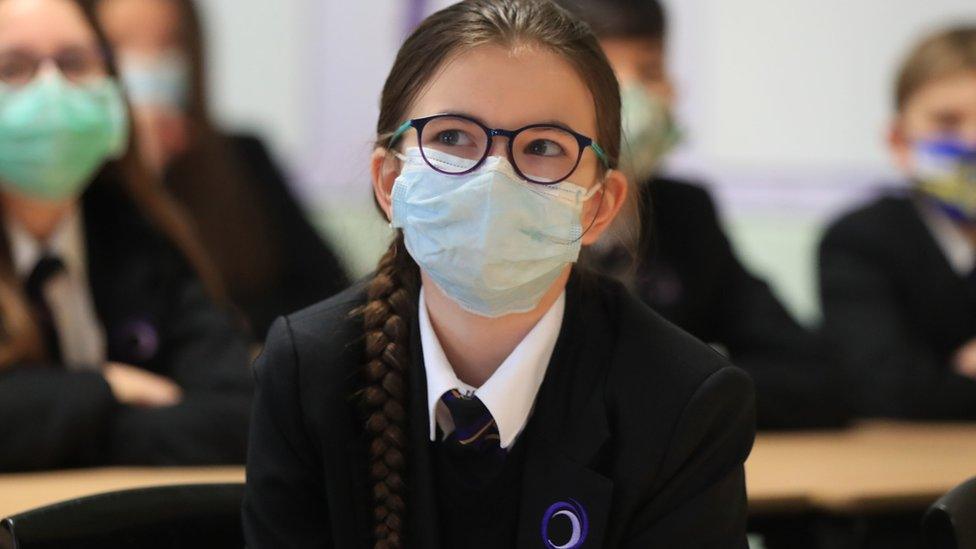
- Published15 March 2021
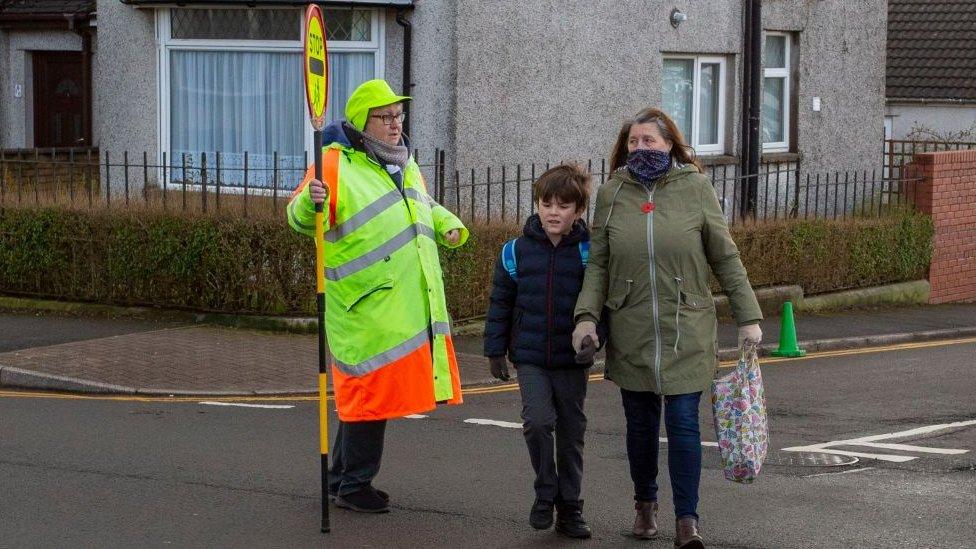
- Published23 November 2020
